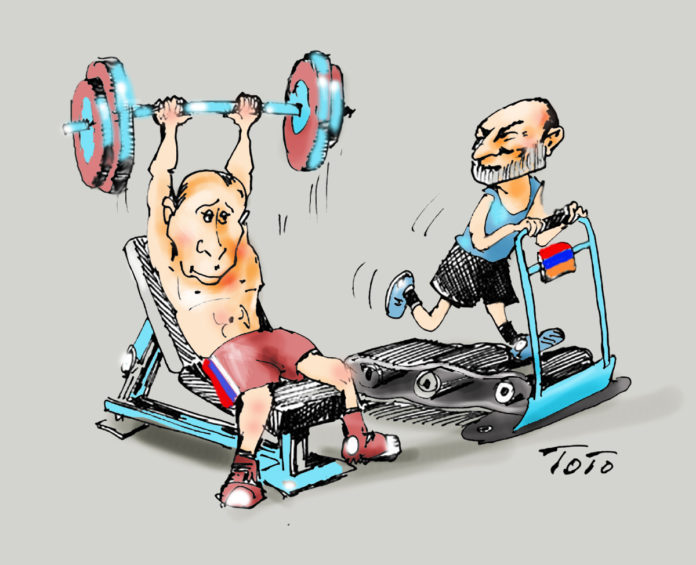By Edmond Y. Azadian
To state that Armenia and Russia are on a collision course does not make one an alarmist. Indeed, the anti-Russian rhetoric is heating up in Armenia’s media and in political discussions, and Russia has been retaliating discreetly, perhaps saving a major or possibly devastating response for a later date.
No one should be naïve enough to believe that anti-Russian sentiments and insults spewing out of certain media outlets have their origins in Armenia. They arrived in Armenia on the heels of the Velvet Revolution and they are being orchestrated from abroad.
This view should not take away anything from what the revolution brought to society in Armenia. No one is shedding tears for the demise of the old regime, except certain holdovers from the past.
However, if the orchestration intensifies to blur the delineation between the genuine goals of the revolution and an anti-Russian campaign, the revolution itself may end up as a casualty.
At this point, we have enough historic distance to note the parallels between the Orange Revolution in Ukraine, the Rose Revolution in Georgia and the revolution in Kyrgyzstan, to see that all three have been carried out through the same methods, bear the same signature and consequently are meant to serve the same purposes.










